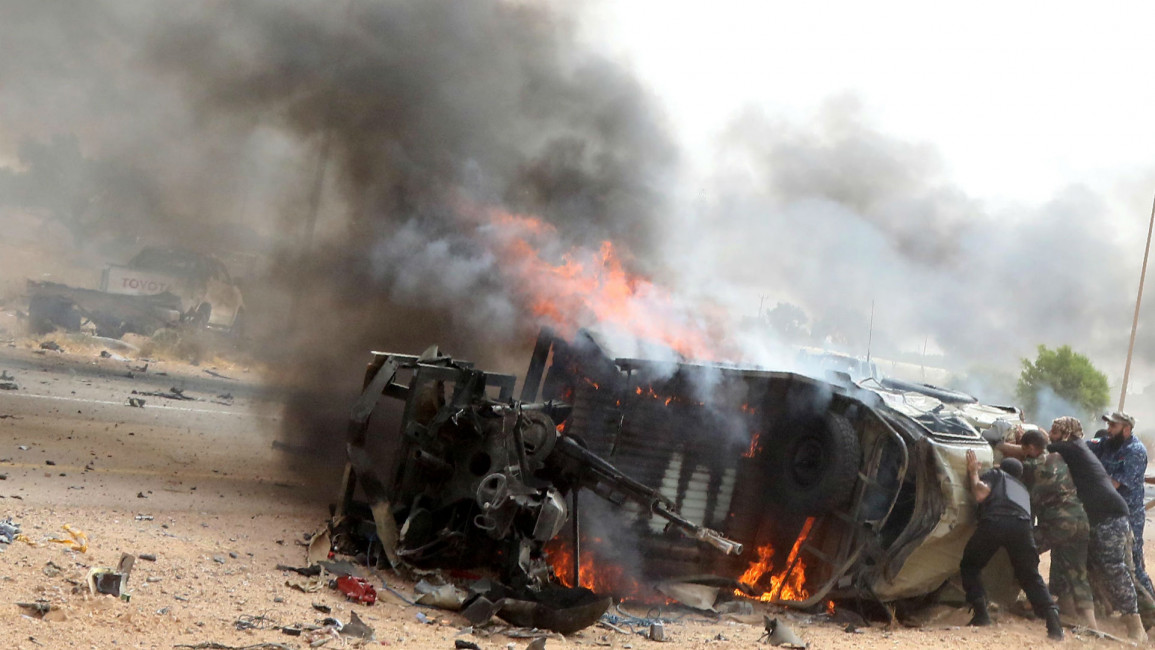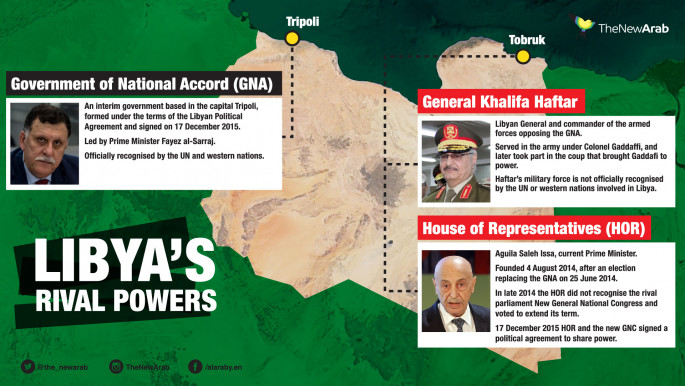Car bomb in Libya's Benghazi kills 23 soldiers
A suicide bombing in Libya's second city of Benghazi on Tuesday killed at least 23 soldiers loyal to Libya's recognised parliament and wounded dozens others, a hospital official said.
The official, who spoke on the condition of anonymity, said the bombing took place in the al-Qawarsha district on the outskirts of the city.
A coalition of Islamist militias called the Shura Council of Benghazi Revolutionaries, which includes the al-Qaeda affiliate known as Ansar al-Shariah, claimed responsibility for the deadly attack in a statement posted on Twitter.
The group claimed that 28 people were killed and as many as 70 wounded.
For the past two years, fighting has been raging in Benghazi between forces under the command of controversial general Khalifa Haftar and Islamist militias.
The attack was the fourth car bombing in the city in a week, however, the number of casualties from Tuesday's blast was far higher than in previous attacks.
A witness told Reuters that the powerful explosion reduced a three-story building to rubble, and that 10 vehicles, some of them armoured, had been destroyed.
Four field commanders were reported among the dead and some soldiers' bodies were trapped under the rubble.
The attack comes after the United States started an air campaign on Monday in the central city of Sirte, the last bastion of the Islamic State group in Libya
The strikes followed a request made by the internationally recognised government and presidency council in the capital, Tripoli. The two executive bodies were formed after the United Nations brokered a deal among Libya's rival factions.
Libya has descended into chaos following the 2011 overthrow and the killing of longtime dictator Moammar Gaddafi.
Since 2014, the country has been divided between two governments and parliaments, and a loose set of militias and tribes.
The UN-brokered government led by Fayez Serraj aimed at healing the rift, but a crucial vote of confidence has yet to be obtained from the parliament.




